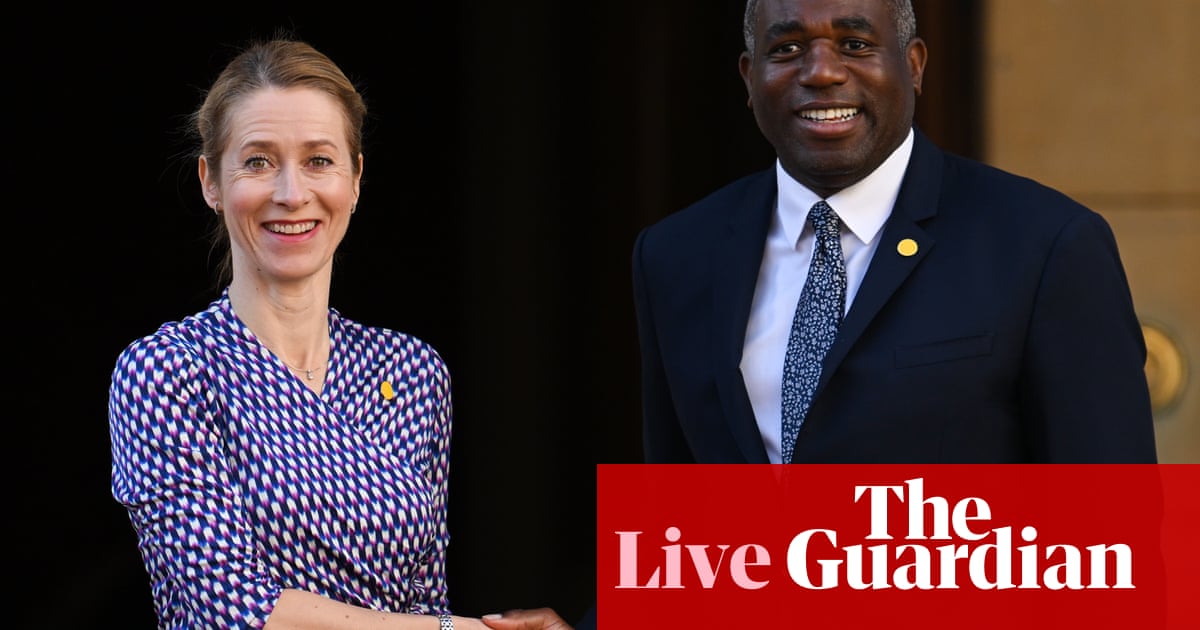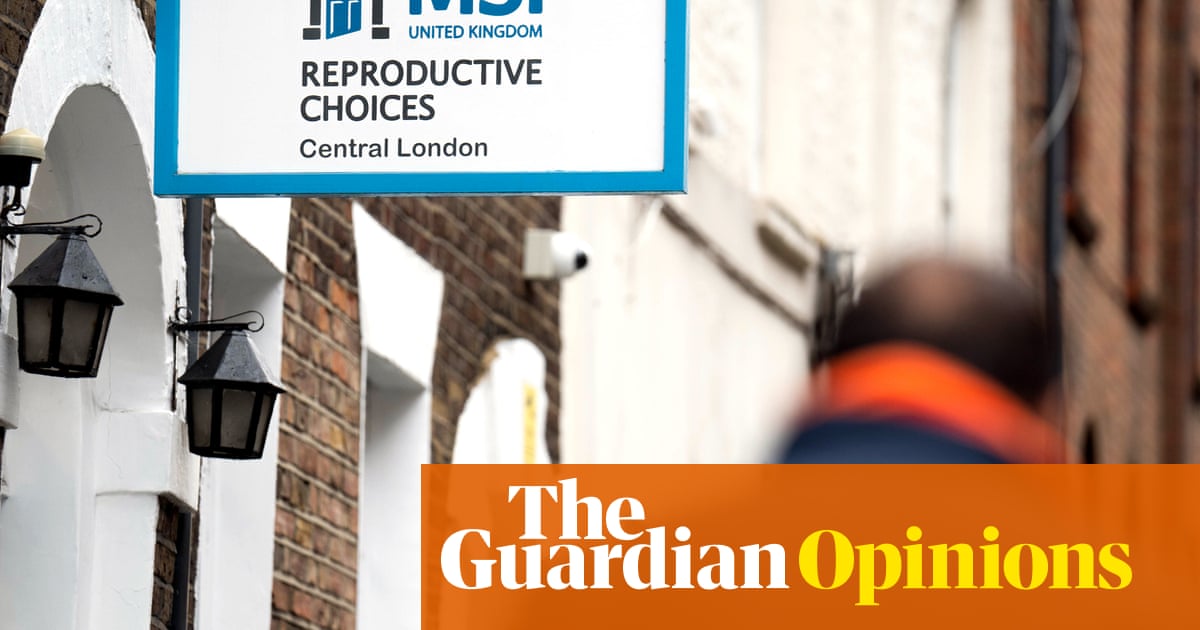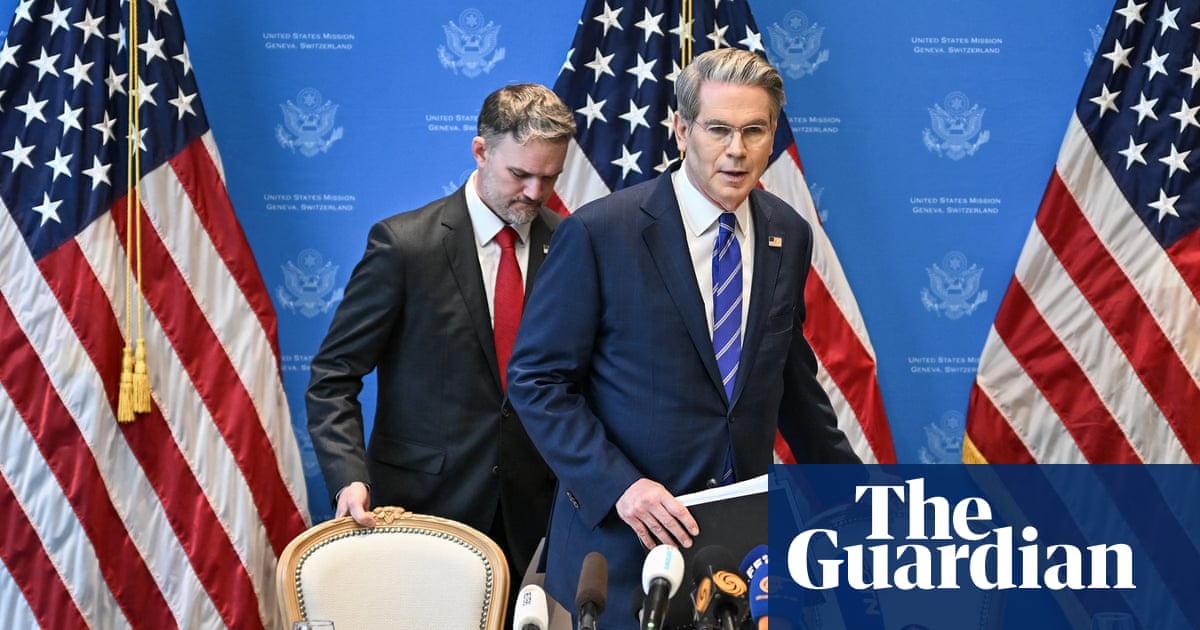UK employers laid off staff in April at a faster pace than the previous month as the combination of higher employment costs and shock waves from Donald Trump’s tariff war sent boardroom confidence levels plummeting.
The human resources association, CIPD, said employer confidence levels slumped to an all-time low, prompting job cuts and a widespread hiring freeze.
Higher national insurance contributions (NICs) and the rise in the national living wage, which both came into effect in April, and the uncertainty created by the US president’s import duties were blamed by employers for ending signs of optimism earlier in the year.
The drop in confidence levels was matched by the fall to a record low, outside the pandemic, in the number of UK employers expecting to increase headcount in the next three months. CIPD records go back to 2014.
A separate survey of small and medium-sized businesses by the business advisory firm, BDO, revealed a similar picture.
The firm said a decline in output in April by manufacturing and services firms underscored the pressure facing businesses, “with confidence levels now at their weakest point in four years, comparable to levels seen during the national lockdowns”.
The chancellor, Rachel Reeves, will hope the surveys – which were completed before last week’s cut in interest rates by the Bank of England and the UK trade agreements with the US and India – will show a rebound in confidence during the summer.
Reeves has said that growing the economy is her No 1 priority and that she needs firms to be more optimistic if they are to increase investment and expand production.
However, the CIPD said a recovery could not be guaranteed when employers were likely to be faced with extra costs from the government’s employment rights bill, which added another layer of uncertainty to an already difficult outlook.
James Cockett, senior labour market economist at the CIPD, said: “The employment rights bill is landing in a fundamentally different landscape to the one expected when it formed part of the Labour manifesto in summer of last year.
“It was always going to be a huge change for employers, but they’re operating in an even more complex world now. It’s vital the government works closely with employers to balance the very real risk of reductions in investment in people, training and technology with their desire to reduce poor employment practice.”
The CIPD’s latest labour market outlook report, based on a survey of 2,000 employers, showed the rate of firms expecting to increase headcount had fallen sharply among large private sector employers, and in retail in particular.
An index of employment fell from +13 in the last quarter to +8 in the latest quarter. The balance tumbled furthest in the public sector, which fell into negative territory, from +3 to -4. In the private sector, retail companies were the worst affected.
Another survey, by the accountants KPMG and the Recruitment and Employment Confederation, which represents jobs agencies, found demand for staff weakened in April in line with a steady decline over the past 18 months.
“The rate of contraction quickened slightly since March, but remained softer than seen earlier in the year,” it said, adding: “Underlying data pointed to similarly sharp falls in both permanent and temporary vacancies.”
after newsletter promotion
Scott Knight, head of growth at BDO, said: “Month on month we’re seeing the bleak impact of the increased tax burden, greater regulation and global instability on UK businesses.
“For mid-market companies to thrive they need space to focus on day-to-day operations rather than constant firefighting. It is practically impossible for businesses to plan and invest with so much instability.”
The Bank cut interest rates by a quarter point to 4.25% last Thursday. Economists at the Bank said it was too early to judge how the increases in NICs and the national living wage would affect the jobs market.
It said many employers had signalled they would try to recoup costs through lower wage rises and higher prices rather than cuts in the level of employment.
A Treasury spokesperson said the government was providing stability for businesses to encourage investment.
“Trade deals with India and the US show the benefits of our cool-headed diplomacy.
“We have provided business rates relief, capped corporation tax, and are protecting the smallest businesses from the employer national insurance increases. And we’ve now seen four interest rates cuts since July, making it cheaper for businesses to borrow,” they said.

.png) 11 hours ago
7
11 hours ago
7













































